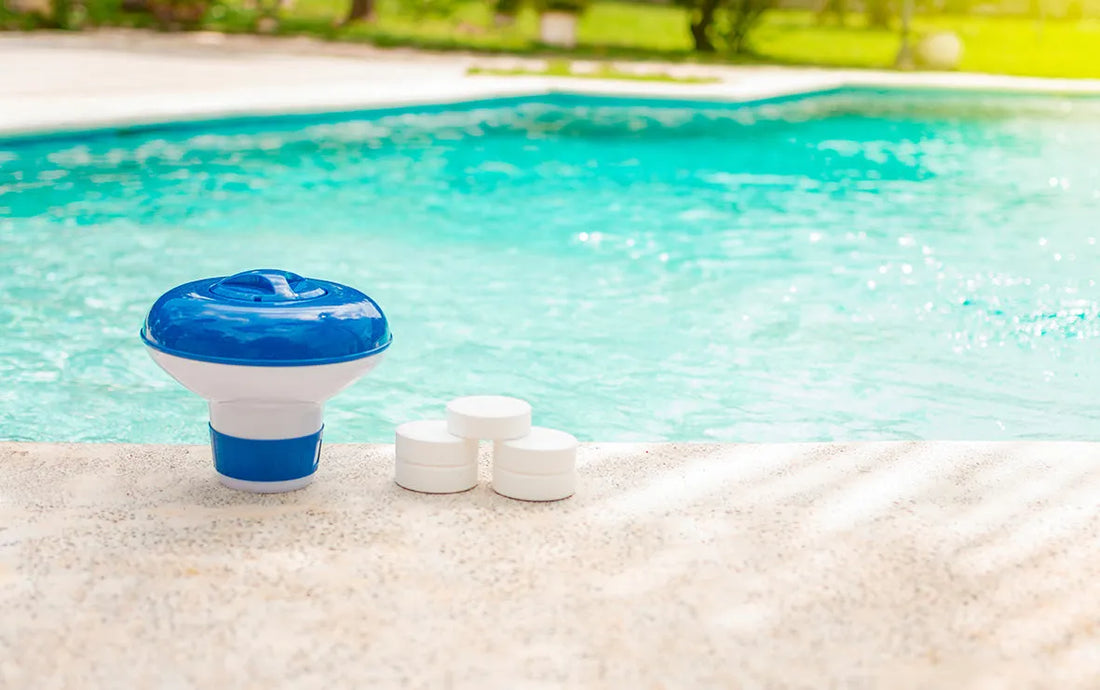Chlorine: The Essential Element for Pool Care and Safety
When it comes to maintaining a clean, safe, and inviting pool, one substance stands out as a true hero: chlorine. It is the most widely used pool disinfectant, and for good reason. Chlorine plays a crucial role in keeping your pool water clear and free of harmful pathogens, ensuring a safe and enjoyable swimming environment. But why exactly is chlorine so important for your pool? In this blog post, we’ll explore its functions, benefits, and the role it plays in pool maintenance.
What is Chlorine and How Does It Work?
Chlorine is a chemical element that acts as a disinfectant, killing bacteria, viruses, and algae in pool water. It works by breaking down the cell walls of microorganisms and rendering them harmless. When added to pool water, chlorine forms hypochlorous acid, which is highly effective at eliminating pathogens. This process is essential for keeping the water clean and safe for swimmers.
The Importance of Chlorine in Pool Maintenance
-
Sanitising and Disinfecting the Water One of chlorine’s primary roles is to sanitise the water by killing harmful bacteria, viruses, and other pathogens. Without proper sanitation, your pool could become a breeding ground for harmful microorganisms that can cause skin irritations, eye infections, or even more serious illnesses. Chlorine helps to prevent these health risks by neutralising contaminants in the water.
-
Preventing Algae Growth Algae can quickly turn your pool into a green, murky mess if left unchecked. Chlorine plays a vital role in preventing algae growth by disrupting its cellular processes. Even if algae spores are present in your pool, chlorine can keep them from multiplying and forming algae blooms, which can make your pool unsightly and slippery.
-
Maintaining Water Clarity Chlorine helps maintain clear water by breaking down organic debris like leaves, oils, and sweat that swimmers introduce to the pool. Without chlorine, these substances could cloud the water, making it not only less aesthetically pleasing but also more difficult to swim in. By keeping the water clear, chlorine helps improve the overall pool experience.
-
Oxidising Contaminants In addition to killing bacteria and viruses, chlorine also oxidises other contaminants, such as lotions, sunscreens, sweat, and urine, that swimmers bring into the pool. Oxidation is the process where chlorine reacts with these substances, breaking them down and preventing them from accumulating in the water.
-
Establishing Proper Pool Balance Chlorine helps maintain the proper balance of chemicals in your pool. It works in conjunction with other pool chemicals like pH balancers and stabilisers to ensure that the water is not too acidic or alkaline, which could lead to pool surface damage, corrosion of equipment, or irritation to swimmers. Proper chlorine levels help keep the water comfortable and safe.
Types of Chlorine Used in Pools
There are several types of chlorine available for pool care, each with its own set of advantages. The most common forms are:
-
Liquid Chlorine: A fast-acting and highly effective option, liquid chlorine is easy to apply but needs to be added frequently.
-
Granular Chlorine: Granular chlorine is a solid form that dissolves quickly in water. It’s often used for shock treatments to eliminate high levels of contaminants.
-
Chlorine Tablets: Chlorine tablets are a convenient and slow-dissolving option. These are often used in automatic chlorinators and floating dispensers, providing a consistent release of chlorine over time.
Each form of chlorine has its own application method, and choosing the right one depends on your pool's specific needs.
How to Maintain Proper Chlorine Levels
Maintaining the correct chlorine levels is key to keeping your pool safe and inviting. Too little chlorine can result in insufficient sanitisation, while too much chlorine can cause irritation to the skin and eyes. The ideal chlorine level for a pool is typically between 1.0 and 3.0 parts per million (ppm). You can easily monitor the chlorine levels in your pool using a pool test kit or strips, and adjust the chlorine as needed.
To keep your pool at the right chlorine level, you should:
- Regularly test the water and adjust chlorine levels accordingly.
- Use a chlorine stabiliser (cyanuric acid) to help protect the chlorine from the sun’s UV rays, which can degrade chlorine levels.
- Shock the pool periodically, especially after heavy use, rain, or any significant contamination, to ensure the water remains properly disinfected.
Chlorine is the cornerstone of effective pool care. By disinfecting the water, preventing algae growth, maintaining water clarity, and eliminating harmful contaminants, chlorine helps create a safe and enjoyable swimming environment. Understanding the vital role it plays in pool maintenance and keeping the right chlorine levels is essential for every pool owner. Whether you choose liquid chlorine, granular chlorine, or chlorine tablets, ensuring your pool has the proper sanitation is key to preserving its cleanliness and safety for swimmers. So, next time you take a dip, remember: chlorine is working tirelessly beneath the surface to keep your pool fresh and inviting.


